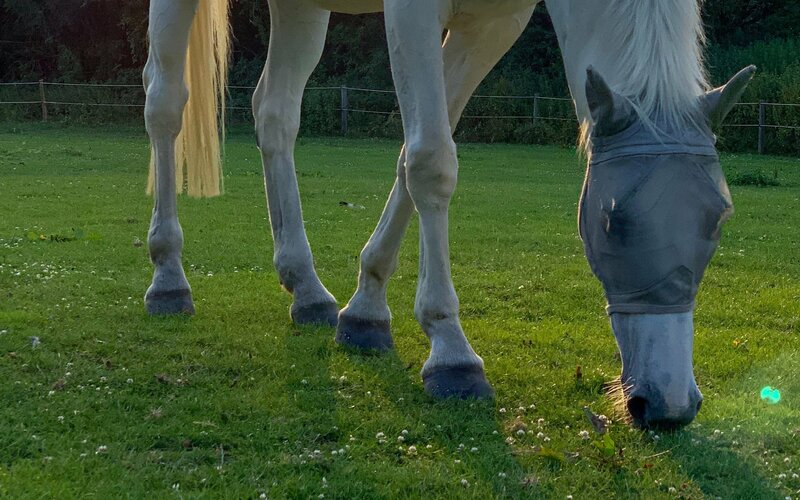
How does spring grass affect horses

An event horse’s diet is of vital importance and riders often worry that the spring grass contains too much energy, changing their horse’s behaviour or affecting their digestive system, but what is the reality of spring grass, and what can we do to manage our event horses through this period successfully?
Good to know….
Young, succulent spring pasture growth has higher levels of carbohydrates for energy, and protein for growth and repair, than older or later season pasture.
If your horse is not currently in hard work make sure you keep an eye on their girth line, as grazing on spring grass without the higher energy demands of performance is likely to result in weight gain.
Maintaining digestive health
Whatever the nutritional demands of your horses, one thing you will need to be aware of is that spring grass represents a significant change in the diet from the preserved forage of hay and haylage fed through the winter months.
“Don’t forget one of the ‘golden rules’ of feeding – make any change gradually.”
- Spring grass has a relatively low percentage of fibre, which is so important to equine digestive health.
- Therefore a change from the much more fibrous hay can cause digestive upset.
- Due to both the change in diet from the winter ration, and the naturally lower fibre level of spring grass, even with careful management it is not unusual to see digestive upset at this time. Spring grass is recognised as a risk for issues such as diarrhoea.
Feeding on Spring Grass
Spring grass can cause dysbiosis – an imbalance in the microbial population of the gut. Here are some things that you can do to help your horse:
- It’s advised to continue to offer hay in the field, which many horses will naturally choose alongside the new grass to boost the fibre level in their diet.
- Feed a probiotic yeast, (look for Sacccharomyces cerevisiae on the label) which will work as a digestibility enhancer and should be fed alongside a prebiotic sugar (fructo-oligosaccharides) to support the microbiota of your horse’s digestive tract.
- To further support that change, ensure the supplement chosen includes natural digestive absorbents, such as digestive clays like bentonite and the herbal support of psyllium seeds, and feed daily throughout the season to maintain digestive health.
Keeping horses calm on Spring grass
One thing we often hear at this time of year is the idea of ‘spring madness’, or a significant increase in reactive and anxiety issues compared to behaviour over the winter. In part, this may be due to the higher energy of the grass, but we also need to consider nutrient deficiencies.
- Magnesium uptake into grazing can be particularly low during spring, often associated with the higher potassium levels in grass which can limit the uptake of this essential nutrient.
- Magnesium is known to play a key role in behaviour, and recent research has shown that when a magnesium and herbal blend is supplemented to reactive horses, it was shown to support focus and a calm outlook, without any signs of sedation.
- Therefore for horses exhibiting anxiety or lack of focus, it is advised to feed a high fibre, low starch diet supported with a magnesium herbal complex to maintain a calm outlook.
Contributors: Kate Hore RNutr(Animal) Nutritionist at NAF
Originally published in the 2019 March/April issue of British Eventing Life, original words by Stephanie Bateman
Kindly sponsored by NAF
